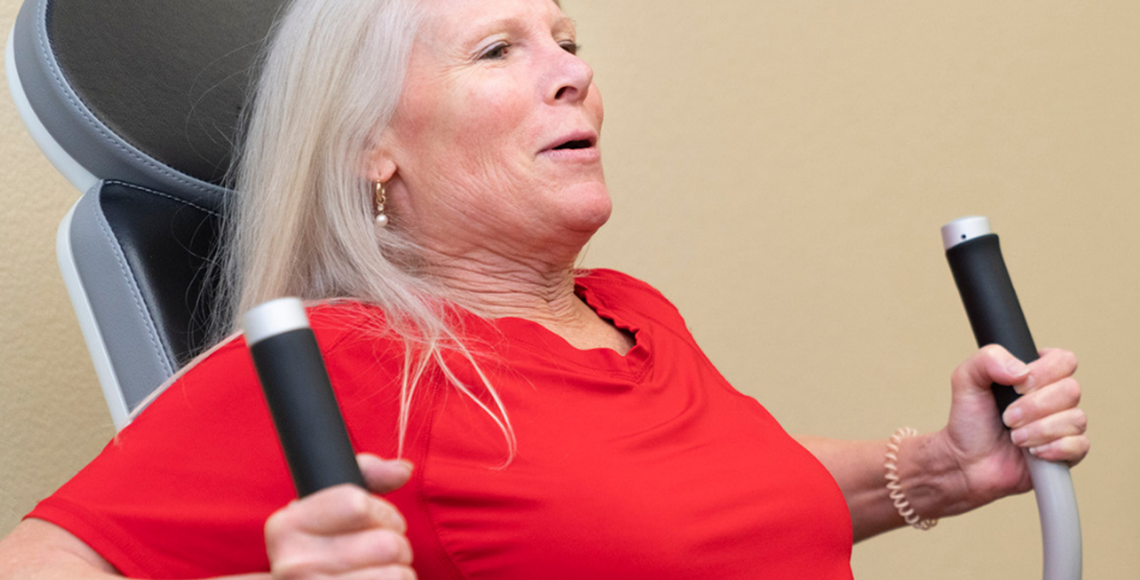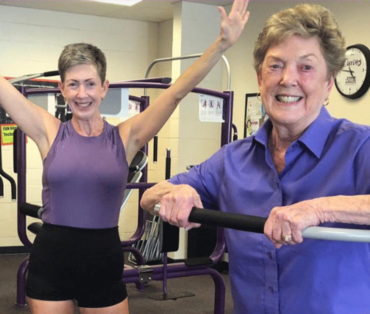Defend Yourself Against Alzheimer’s Disease
As women, we are strong in so many ways, but unfortunately, more of us get Alzheimer’s Disease than men. In fact, women are twice as likely to develop Alzheimer’s disease in their 60s as they are to get breast cancer, and nearly two out of three people living with Alzheimer’s Disease are female. Some of the reasons why women are more likely to get Alzheimer’s Disease are out of our control. However, studies suggest that certain lifestyle changes can help with Alzheimer’s prevention. In the spirit of Alzheimer’s and Brain Awareness month, here’s some information on what you can do for Alzheimer’s Disease prevention.
How Does Alzheimer’s Disease Affect Women?
Alzheimer’s Disease (AD) is a brain disorder that slowly destroys memory and thinking skills and eventually affects a person’s ability to complete simple tasks.1 Women with Alzheimer’s make up 66 percent of the six million individuals with the disease.2 In addition, most of the caretakers of people with AD are women. According to the Alzheimer’s Disease Association, 11 million women in the United States are either living with Alzheimer’s or caring for someone who has it. As women, we are affected by both sides of this debilitating disease.
At one point, researchers thought there were more women with Alzheimer’s than men because women live longer. However, more recent studies show there are genetic and biological factors specific to women that affect the brain physiology, symptoms, and progression of the disease. That’s the bad news. The good news is, there are certain lifestyle changes that have been shown to boost brain health and help with Alzheimer’s Disease prevention.
Exercise for Brain Health
More good news for all Curves members—research shows that people who are physically active are less likely to experience declines in mental function than those who are more sedentary. In a 2020 study, researchers found that physical exercise helped improve cognitive function in people with AD and exercise also had fewer side effects than medications to treat the disease.3 Research on exercise for brain health shows the sooner in life a person starts working out, the better he or she does when it comes to preventing AD and other forms of mental decline.4
With that being said, it’s never too late to start a full body workout like the Curves circuit. If you’ve been meaning to start a women’s fitness program, now is the time! As a bonus, you’ll socialise with a community of women at Curves, and a strong social network can also help with Alzheimer’s Disease prevention.5
To Protect Your Brain, Take Care of Your Heart
If you have risk factors for cardiovascular disease and stroke, such as obesity, diabetes, or high blood pressure, you’re also at increased risk for poor brain health and diseases like AD. One of the best ways to keep your heart and cardiovascular system healthy is to engage in regular whole-body workouts like Curves. Remember, you don’t have to spend your life in a gym to reap the heart-healthy benefits. Just 30 minutes (the length of the Curves Circuit workout), most days of the week will do the trick. 6
Eat Well to Boost Women’s Brain Health
Numerous studies over the past decade have shown a link between the foods you eat and a healthy brain. A balanced diet rich in certain vitamins and nutrients helps support brain health and prevent diseases, such as AD, that affect cognitive function in older people.7 Here are some of the best dietary changes to make for women’s brain health:
- Limit foods high in refined sugar, such as candy, cookies, cake, and soda. A high sugar diet can lead to excess sugar in the brain, which contributes to memory problems and increased risk of diseases that affect cognitive function, like AD. Aim for 25 grams of sugar or less per day. 8
- Eat plenty of fruits and vegetables rich in flavonoids, such as kale, peaches, berries, and tomatoes.
- Consume foods rich in omega-3 fatty acids, such as fatty fish, flaxseed, and walnuts.
- Be sure to eat enough protein. Good sources include nuts, soy, and lean meats.
- Keep your carbs whole grain, such as brown rice, wheat pasta, and whole grain bread. 9
Keep Your Brain Active
Just like you work your muscles to make them stronger as you go through the Curves Circuit, you can do mental exercises for brain health, too. For Alzheimer’s disease prevention, challenge your brain to do things and think thoughts it hasn’t tackled before. Take up a new hobby, such as playing the piano, doing yoga, or painting. Join a book club that reads a genre you don’t typically go for. Do crossword puzzles, word finds, and other brain teaser games. Any activity that challenges your brain with new skills is a good workout for your mind. 10
Give your Brain Some Rest
Not getting the recommended seven to nine hours of quality sleep each night can affect cognition, both in the short and long term. In fact, a recent study done by the National Institutes of Health found that poor sleep—defined as less than 5 to 6 hours per night—in a person’s 50s and 60s was linked to increased AD risk later in life.11 Practising good sleep hygiene at all stages of life can assist in Alzheimer’s prevention. One way to improve your sleep hygiene is by regularly engaging in a total body workout like the HIIT circuit you do at Curves.
To bolster our bodies and our fight against Alzheimer’s Disease, Curves is proud to partner with WomenAgainstAlzheimer’s Be Brain Powerful campaign. This program is designed to help give hope and drive action when it comes to women’s brain health. Check out Curves Cares or My Brain Guide to sign up for regular emails filled with tips and activities.
The Curves women’s gym workout is convenient, combining strength training and cardio plus stretching – all in just 30 minutes – to strengthen your whole body. For more information about Curves and the full body workouts the Curves Circuit provides, visit ‘Why Curves’.
References
- What is Alzheimer’s Disease?
- Women and Alzheimer’s
- Relationship Between Exercise and Alzheimer’s Disease: A Narrative Literature Review
- In the Long Run: Physical Activity in Early Life and Cognitive Aging
- Social networks in mild-to-moderate Alzheimer disease: longitudinal relationships with dementia severity, cognitive function, and adverse events
- Physical Activity Boosts Brain Health
- In Pursuit of Healthy Aging: Effects of Nutrition on Brain Function
- The Effects of a High Sugar Diet on the Brain
- 11 Best Foods to Boost Your Brain and Memory
- Exercises For Your Brain
- Lack of sleep in middle age may increase dementia risk








